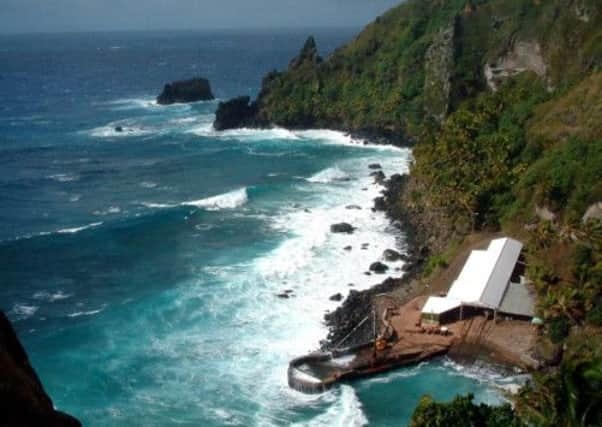UK taxpayer hands £172,000 to each Pitcairn islander


The government has dished out the equivalent of £172,000 for every one of the 48 residents on tiny Pitcairn Island in the South Pacific – even though a huge proportion of them are convicted paedophiles.
The aid money funds a staggering 95 per cent of the remote speck’s entire budget, helping the locals – who pay no tax – receive everything from healthcare to welfare benefits.
Advertisement
Hide AdAdvertisement
Hide AdThe news comes only days after Ukip MEP Godfrey Bloom ignited a fierce debate by saying it was wrong to give aid to “Bongo Bongo land”.
Pitcairn is one of three British Overseas Territories that are reliant on more than £100m of aid.
They include the Caribbean paradise of Montserrat – a haven of white sand beaches and azure blue seas that would be an ideal holiday destination for hard-up Britons if they could afford it – which has received £44.8m since 2010.
That works out as £8,600 for each of the beautiful island’s 5,189 residents.
Meanwhile, the small volcanic outcrop of St Helena has been gifted £53m in the past three years – the equivalent of £6,900 for each of its 7,754 population.
But it is Pitcairn – measuring just one by two miles – that receives by far and away the most per person from the British taxpayer, with handouts since 2010 totalling £8.3m.
The island is almost completely funded by the Department of International Development (DFID).
The support for Pitcairn has increased sixfold since 2006, partly in response to a horrifying paedophile scandal which resulted in a third of the country’s men charged with child sex abuse.
Advertisement
Hide AdAdvertisement
Hide AdThe offences included rape and indecent assault on girls as young as 12. Large swathes of cash have been used to fund a child protection team on the island.
Last year, taxpayers spent £601,000 on a policeman, teacher, social worker and doctor for the island.
The residents of Pitcairn pay no tax as the DFID has decided they cannot afford to.
And the British government finances 76 part-time jobs which provide employment for the 31 working-age locals.
The DFID now predicts that aid for Pitcairn will increase in future years because of the need to support the ageing population on the remote territory, which lies more than 9,000 miles from the UK.
Officials admit that the island’s existence would become “untenable” without Britain’s aid as it has such a miniscule population and the capital, Adamstown, is nothing more than a village of scattered households.
With no airstrip and the only contact with the outside world being provided by the occasional ocean liner, Pitcairn is the most remote inhabited island in the world. It is one of just three British Overseas Territories to receive “budget aid” to ensure their survival.
A DFID spokeswoman said: “The UK government has a responsibility to meet the reasonable assistance needs of the British Overseas Territories, home to British citizens.
Advertisement
Hide AdAdvertisement
Hide Ad“The support we give is negotiated annually with the governments of the overseas territories, based on rigorous analysis of their budgets and regularly reviewed to ensure it represents value for money for UK taxpayers.
“Where conditions are right, we will invest in aided Overseas Territories to set them on a faster path to independence and economic self-sufficiency.”